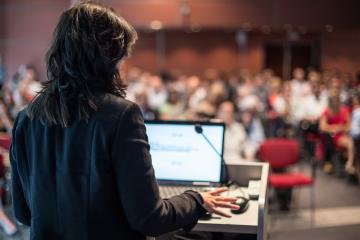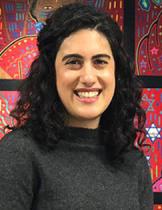
Fostering inclusion in economics: Matt Notowidigdo on the value (and limitations) of mentorship

Economics, as a tool to improve policy and serve communities, is at its most powerful when it includes everyone. Therefore, our work at J-PAL is better when it represents as many perspectives as possible and we all miss out on key insights when it doesn’t. In this series, we speak to J-PAL-affiliated researchers who are working to cultivate an environment where economists of all backgrounds are able to contribute to the quality and credibility of the field, and also feel safe and valued. Part one features Marianne Bertrand on inclusivity at the American Economics Association; part two features Alicia Sasser-Modestino on gender dynamics of economics seminars.
In part three, we sat down with Matt Notowidigdo (University of Chicago) to discuss the value of mentorship on advancing diversity and inclusion in the field of economics. Dr. Notowidigdo is the co-scientific advisor of J-PAL North America and has served as a mentor for the Russell Sage Foundation’s Pipeline Grants Competition and the Inclusive Peer Onsite Distance (IPOD) Mentoring Program with the Women’s Institute for Science, Equity, and Race (WISER). In this post, he reflects on what he has learned through these experiences and opportunities for J-PAL to foster diversity and inclusion in its network of researchers.
You’ve been involved in various mentorship efforts to increase diversity and foster inclusion in the field of economics—why do you think that fostering greater diversity and inclusion in the field of economics is important?
There are clear benefits to diversity in terms of the breadth of research questions that economics as a field tackles. And the lack of diversity right now likely means that certain topics aren’t getting the appropriate amount of attention and certain approaches to research are not being developed.
In terms of inclusion, I think economics can sometimes have a very hostile and uninviting culture, and I have always felt like it is important to try to push back against that and try to change that culture.
What role do you see mentorship programs such as these playing in order to foster greater diversity and inclusion?
Putting my J-PAL North America hat on, I’d say we need more randomized evaluations to really unpack what it is that mentorship accomplishes. Based on my personal experience, I have benefitted a lot from mentors throughout my career from just before graduate school until today. And because I’ve benefitted a lot from those mentorship experiences, I want to pay it forward now that I’ve accumulated my own experience from navigating the economics field over the last fifteen or so years.
Can you share more about your experiences with mentorship programs and the roles you’ve played?
The first program I participated in was the Russell Sage Foundation’s Pipeline Grants Competition that was launched in partnership with the Bill & Melinda Gates Foundation. This program spans several fields, including economics. Mentees receive research funding for a project and are also paired with a mentor from the same field. The program focuses on early career scholars, so typically new assistant professors. This program also seeks to advance diversity along racial, ethnic, and gender diversity, as well as diversity of institutions. I feel like I have a lot of useful practical advice about how to navigate the profession in the first few years as an assistant professor. Nothing I have shared is rocket science, but I still think it’s useful to have someone from outside your department who can help come up with a plan for how to use those first few years efficiently.
IPOD is connected with the AEA summer training program, which is a very impactful summer program for students who are considering economics grad school while in undergrad with a focus on expanding diversity in the profession. Interested students can sign up to receive mentorship to help navigate next steps if applying to an economic graduate school. It’s a different mentoring model; you’re assigned to a group of students, there are typically multiple mentors, and you all meet together. I think this group setup is a lot less intimidating for students. In terms of my role, since I’ve been very involved in admissions committees for PhDs for the last few years, I feel like I have useful advice on how to navigate the graduate school application process and how students can make their packets and writing statements as strong as possible.
What have you learned throughout these mentorship experiences?
This is probably going to sound more pessimistic than I intend it to, but in the last couple of years as part of both of these programs I have felt like mentoring can only do so much. People may face personal, professional, or financial constraints or barriers when making the decision to go get a PhD, or if they have a PhD, in starting out as an assistant professor and launching their career successfully to make sure they can have a sustained presence in the field. As a mentor, I can give advice on how to navigate these barriers, but I’m not in a position to get rid of them.
With my researcher hat on, I’ve thought about potential policies that would help with these constraints. In economics PhD programs, your tuition is typically funded and you get a stipend, which is more generous relative to other fields. But we’re economists, and we know that there are opportunity costs with giving up a salary for six years. And the kind of student that can get into a good economics PhD program could probably earn a decent income in lots of different sectors and giving that up for six years can be really costly. I’ve started to wonder if grad school stipends were a lot more generous if that would change who would feel like they can go to grad school. I’m looking forward to departments experimenting with that in the future.
Drawing on your own experiences, what do you think J-PAL can or should be doing to advance diversity and inclusion in the field of economics?
Through my experience, I’ve learned a lot about the financial constraints and how those can really vary based on how well-resourced your institution is, and we know that there isn’t the same racial, ethnic, and gender distribution across departments by level of resources. I think there’s an opportunity for J-PAL to do even more to support young assistant professors early in their career trying to do randomized evaluations but might struggle with the financial barriers associated with them, particularly for women and researchers of color underrepresented in the field of economics and who are at universities that don’t have a lot of resources. I think targeted Research Management Support or evaluation incubator support to help identify the feasibility of an evaluation early on would be beneficial. I think there are also opportunities for J-PAL professors to serve as mentors, similar to the Regional Scholars Program. It would be interesting to see that approach applied in the J-PAL North America office, and I know that there are researchers who would be interested in taking on this type of role.
Related Content

Fostering inclusion in economics: Marianne Bertrand on addressing professional conduct with the American Economics Association

Fostering inclusion in economics: Alicia Sasser Modestino on gender and the dynamics of economics seminars


